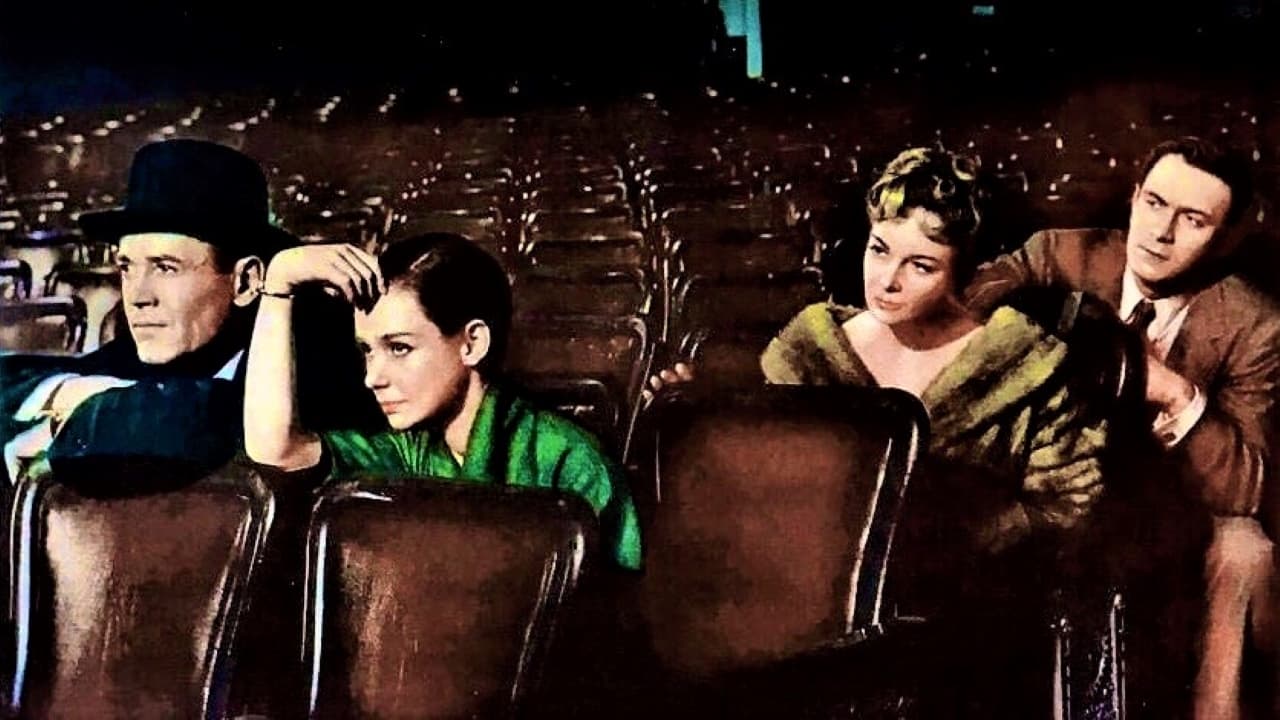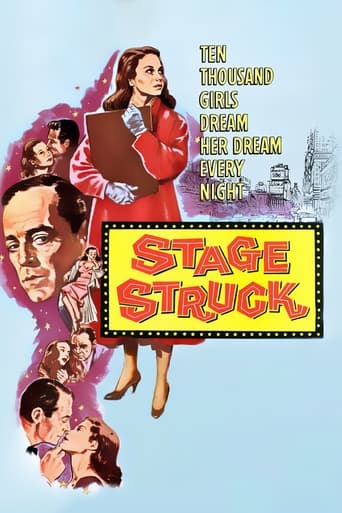Karry
Best movie of this year hands down!
Greenes
Please don't spend money on this.
Usamah Harvey
The film's masterful storytelling did its job. The message was clear. No need to overdo.
Myron Clemons
A film of deceptively outspoken contemporary relevance, this is cinema at its most alert, alarming and alive.
callie-05424
I know this is a remake of Morning Glory with Katherine Hepburn however Henry Fonda is here as well as Susan Stasberg. Plummer has always been one of the greatest chacter Actors we've ever had. He was Captain Von Trapp in The Sound of Music and later Agatha Christie's 'Ordeal By Innonce' which includes Sarah Miles and then we see him playing John Barrymore and a Nazi who has forgotten he ever was one. Plummer is good at the Classics as well but some of his earlier works are not available. He has won one Academy Award but has been nominated several times. He gives life to animated characters in 'Up', 9 and others. Stage Struck is a great film, see if you can find it.
J B Thackery
I had to keep reminding myself that this film was made in 1958, not in our day. It is "timelessly modern." It's not just another fantasy film about the backstage theater world. The acting is so real and emotions so true, you get caught up in every scene as if you are part of the film. Add the excellent photography and cinematography which seem ahead of their time, and you think you are watching a movie made half a century later.This is not all dreamy, and it is not all hardline: It is a perfect blend of both the aspirations of the heart, and the realities people must overcome to achieve them.The story itself has true personal appeal, as it combines dreams of stardom with down-to-earth human feeling. The directing and acting prove that a halfway decent script can be brought to life, exuding an appeal uncommon in any film of any era.Moreover, this is a fine example of how acting and directing can make a movie entertaining MINUS sleeze and vularity.
RanchoTuVu
Susan Strasberg plays Eva Lovelace, an aspiring Broadway actress possessed by some theatric god that directs her to precisely pronounce and deliver each and every word with impeccable timing. She comes to New York by way of Vermont where she performed in numerous summer stock productions and her persistence and personality capture the attention of playwright Joe Sheridan (Peter Cushing) and actor Robert Marley Hedges (Herbert Marshall). Producer Lewis Easton (Henry Fonda) tells her to study the Actor's Studio (would that be Lee Strasberg's school of method acting?) but she doesn't want to dilute her gift by having it altered in an acting school. Strasberg's performance makes and at times almost breaks this picture. It manages to annoy and captivate, often simultaneously. When she delivers Juliet's lines on the stairway of Easton's swank townhome after drinking four or five glasses of Champaigne in front of a party of theater luminaries, it knocks you out. It is as if Eva Lovelace is playing Susan Strasberg. In any event, she (Strasberg) has an unusual beauty and sincerity that come shining through in spite of the theatrics.
Eric Chapman
There is a strange artificiality to Susan Strasberg's performance which really throws this movie off kilter. Obviously she's playing a very theatrical young woman who lives for the stage, and in certain scenes (particularly the party scene where she is not only intoxicated from champagne but the dreamy proximity to so many Broadway celebrities) this technique is effective, but she never turns it off. In tender, heartfelt moments with Henry Fonda's seasoned producer and Christopher Plummer's blossoming playwright, both of whom are supposed to be madly in love with her, she's frightfully unresponsive. She's like a pretty little China Doll whose eyes can blink.Nevertheless, there is much to like about this film. Fonda, Plummer and Herbert Marshall are superb as various incarnations of success who all become enchanted with Strasberg and her bewildering determination to be a star. They are all caught up in the complicated and decidedly unromantic machinery of the theatre world, and she represents the innocence they've either forgotten (Marshall), lost (Fonda), or are in jeopardy of losing (Plummer). (Although again, as Strasberg plays her, the innocence seems like a put-on, a florid, elaborate joke.) Part of the pleasure of the film is seeing Plummer in one of his very first, pre-"Sound of Music" roles. A darkly compelling leading man during this time with brooding traces of the new method acting style, he and the old school Fonda work well together - there's an interesting "passing the torch" dynamic there.But the real reason to see this film is the stunning location photography of New York City. The director, Sidney Lumet, has always loved the city just as much as Woody Allen, and here it is practically the star. There is an exquisite scene in a snow blanketed park (Central?) that is as vivid as being there.There is an added poignancy to this picture as Strasberg's part as an actress on the verge of "making it" was, I believe, intended to neatly dovetail with her own emerging stardom. A stardom that was, alas, to be short-lived.

